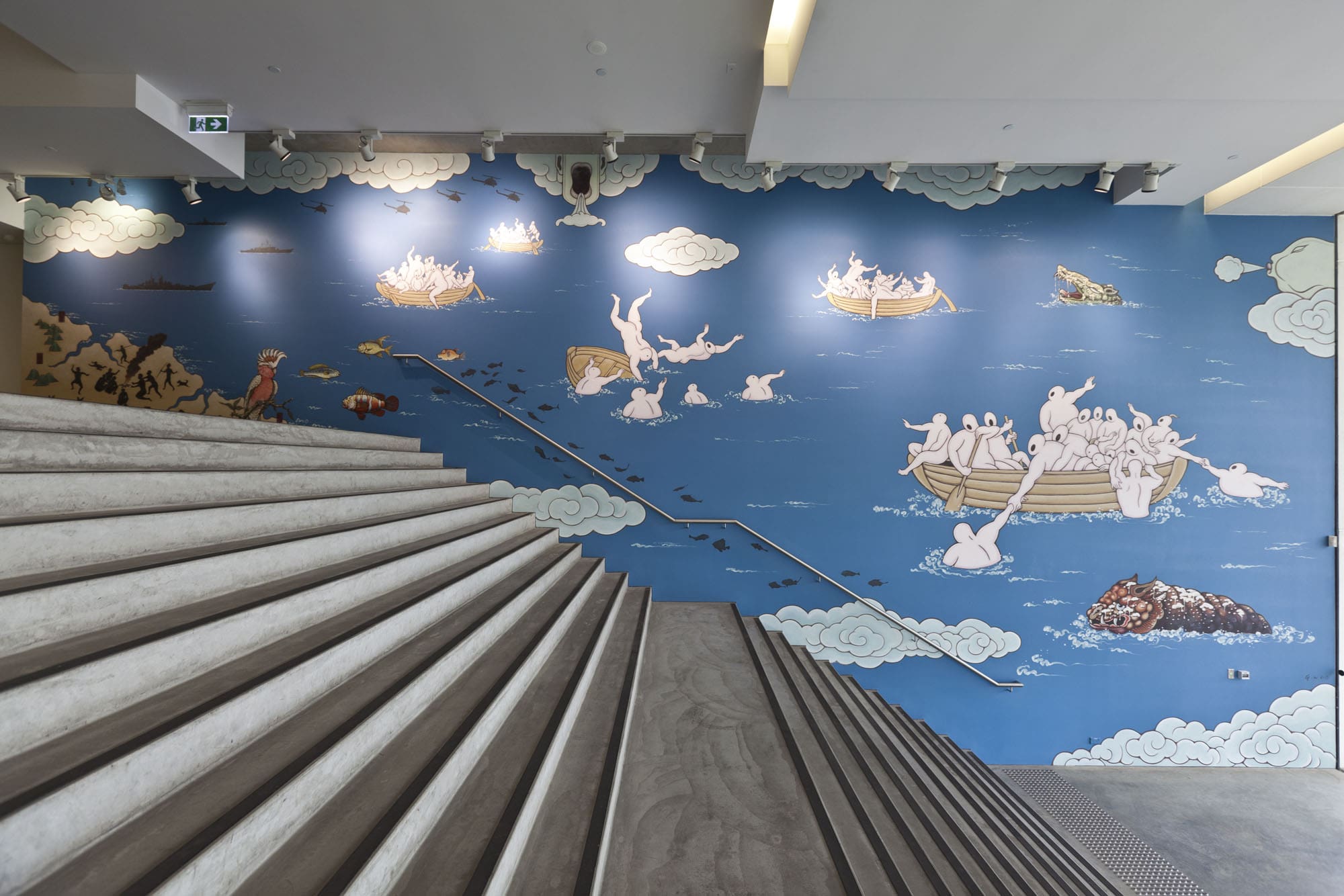When I think about conversations I’ve had with peers in my multicultural communities over the years, there are recurring themes that come to mind. We discuss the hardship our parents faced in their home countries – usually post-colonial nations – and the difficult journey to settling within Australia. We share our frustration about various incidents of both overt and covert racism we’ve had to put up with. We take pride in our wins, big and small, in our desire to belong and thrive in spaces that have historically been dominated by white people.
These are important conversations to have, no doubt. And whilst they have been useful in debunking the neoliberal myth that all Australians have equal opportunity to succeed regardless of race, they omit a crucial aspect of the migrant experience. This archetypal narrative of the migrant, one who must overcome structural barriers to gain the coveted status of inclusion within a western colonial society, is, ironically, a narrative founded itself on multiple neoliberal assumptions.
It starts with the way we define our wins, and ultimately, our end goal. In this narrative, success involves belonging and thriving within the unfamiliar, yet comparatively superior spaces of Australian society. This is particularly true of migrants from postcolonial, emerging democratic nations (myself included) – our home countries are typically marked by greater social and economic instability, with imperfect political regimes.
However, there are issues with this conception of success. First, it adopts the western liberal view of the state that its ‘founders’ (i.e, colonisers) and their descendants hold. While Australian society is comparatively better than those of many postcolonial nations, it is far from perfect. Hailing it as an ideal obscures the fundamental violence the state inflicts every day on Indigenous Australians, and thereby makes us complicit in upholding the settler-colonial project. Interrogating the Australian state through this lens raises questions about whether it’s a society worth belonging to.
Striving for belonging and assimilation as a way to address racial inequality is also worth critical interrogation. The reasoning behind this approach to injustice is that it gradually corrects a society marred by racial inequality – by gaining inclusion and securing influence at the top, migrants who ‘make it’ are ultimately in a position to remove the barriers they faced and clear the path for future migrants. It assumes that racism can be eliminated completely through correction rather than abolition of the state.
This is ultimately a neoliberal, reformist approach to addressing inequality. As history has shown, racism hasn’t disappeared from Australian society, despite it being more inclusive and tolerant of migrants than in the days of the White Australia Policy. Instead, racism has persisted in subtler, more invisible ways. We see, for example, it in the little microaggressions – teachers refusing to pronounce our names correctly, furtive looks from white classmates just before they play devil’s advocate in class. We see it in big things, too – ignorant politicians fear-mongering about our communities on national television, or the slew of ‘strong border policies’ by a string of governments that keep refugees locked up in inhumane conditions in offshore camps. Racism is embedded in the state because Australia is a western colonial one that benefits from concentrating power at the (white) centre at the expense of those on the peripheries.
The process of assimilation is thus also a process of accessing the privilege of whiteness. The quest for assimilation is essentially the quest for parity with our white peers who are automatically imbued with the ‘success’ we seemingly crave – inclusion and influence within Australian society. And because power is concentrated in whiteness in the western colonial state, the process of moving from the periphery to the centre (i.e, assimilation) necessarily entails taking on the advantages of that increasing proximity to whiteness, often at the expense of our inherent non-whiteness.
Accessing the privilege of whiteness is totally different to white privilege, which can never be obtained by migrants. There is, however, an inherent privilege to being a migrant. Fundamentally, being a migrant (bar asylum seekers and refugees) necessarily entails access to the legal and financial resources to actually move to a different country in the first place. The imperative behind migration is to access the ‘better opportunities’ in the new country. But such an imperative wouldn’t be necessary if it weren’t for the forces of colonialism and imperialism that have divided the international system into a Global North and South.
Thinking holistically and seriously about eliminating racism entails moving beyond the archetypal narrative of the migrant. Although its neoliberal underpinnings make it attractive – it has the benefit of accounting for both structural causes of oppression and our agency to resist – it is insufficient. Migrants must recognise the ways in which we are structurally privileged as well in order to work towards genuine, radical solutions.





